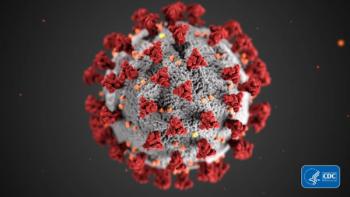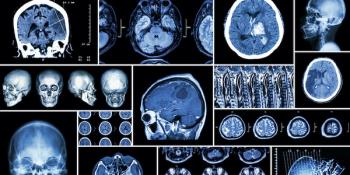
Ezio Bonifacio, PhD, discusses the optimal time to begin monitoring for type 1 diabetes (T1D) in children genetically at risk for the disease.

Ezio Bonifacio, PhD, discusses the optimal time to begin monitoring for type 1 diabetes (T1D) in children genetically at risk for the disease.

Ann Goebel-Fabbri, PhD, a clinical psychologist in Boston, Massachusettes, outlines trends in eating disorders among patients with type 1 diabetes.

Mary Pat Gallagher, MD, of NYU Langone Health, explains her research documenting new onset diabetes and diabetic ketoacidosis (DKA) throughout the COVID-19 pandemic.

The American Diabetes Association's chief scientific and medical officer said the results are important to families at risk of type 1 diabetes.

Robert A. Gabbay, MD, PhD, the chief science and medical officer at the American Diabetes Association (ADA) offers insights on trial results and sessions to be presented at this year's ADA Scientific Sessions, taking place virtually June 25-29, 2021.

New CMS changes aim to broaden coverage of continuous glucose monitoring (CGM) devices.

Study results indicate COVID-19 transmission mitigation efforts may have led to delayed diagnoses of type 1 diabetes (T1D) in Finnish children, resulting in more cases of diabetic ketoacidosis at presentation.

National Institutes of Health–sponsored research examines the underlying cause of COVID-19–induced diabetes.

Results of a systematic review underscore implications of increased rates of metabolic syndrome among youth with type 1 diabetes.

Results of a nationwide study show earlier onset of type 1 diabetes (T1D) is associated with worse glycemic outcomes and presence of albuminuria.

Results of a study conducted in California suggest some adolescents with type 1 diabetes (T1D) improved their glycemic control during the COVID-19 lockdown.

Data from a longitudinal study reveal poor glycemic control and blood pressure management may contribute to cognitive decline in older patients with type 1 diabetes.

FDA panel members acknowledged the challenges and significant unmet need that patients with T1D face, along with the small size of the pivotal study.

A recent analysis of The Environmental Determinants of Diabetes in the Young study found maternal diet has no impact on type 1 diabetes and islet autoimmunity (IA) risk.

Results of a qualitative study outline widely held cost considerations regarding diabetes technology in the type 1 diabetes (T1D) community.

Frank Martin, PhD, director of research at JDRF, discusses the organization's efforts to educate regulators about the disease.

The FDA cleared Bigfoot BioMedical's Diabetes Management System.

Frank Martin, PhD, director of research at JDRF, shares feedback from patients on JDRF's T1Detect screening program.

Researchers used data fromThe Environmental Determinants of Diabetes in the Young study to assess whether age impacts risk of T1D onset.

Frank Martin, PhD, director of research at JDRF, discusses the importance of diabetic ketoacidosis mitigation efforts and appropriate education for parents of children with type 1 diabetes (T1D).

Researchers identified gene expression signatures associated with risk of type 1 diabetes (T1D).

Frank Martin, PhD, director of research at JDRF, outlines some of the past and current efforts of the organization to support type 1 diabetes prevention therapies.

An analysis of an ongoing study on children genetically at risk of type 1 diabetes examines the monitoring behaviors of parents.

Frank Martin, PhD, director of research at JDRF, on the organization’s T1Detect screening program and exploring potential causes of type 1 diabetes.

While clinical trials have screened people with family risk of type 1 diabetes for many years, population-level screening for autoantibodies is not the norm.

259 Prospect Plains Rd, Bldg H
Cranbury, NJ 08512
© 2025 MJH Life Sciences®
All rights reserved.
